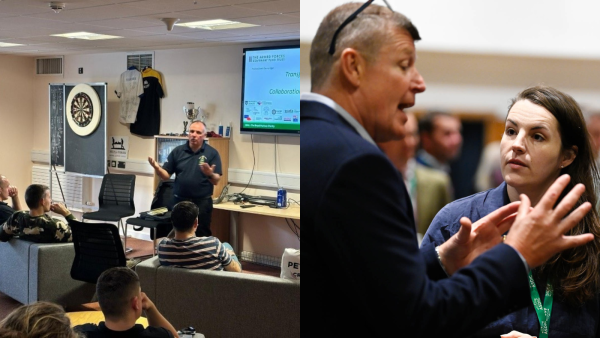RMA – The Royal Marines Charity has completed the first phase of its three-year ‘Building Collaboration and Consensus’ project that aims to develop and implement a Common Assessment Framework, preventing beneficiaries having to repeat and re-explain their challenges and issues time and time again through multiple agencies before receiving any required much-needed support.
By building collaborative partnerships across the entire Armed Forces charity sector and those organisations supporting the veteran community, the project is working to limit inconsistencies in the support of beneficiaries’ needs. The creation of a common framework for assessment and evaluation will result in a seamless and consistent response, with the beneficiary and their family at the centre.
The project, funded by a £300,000 Transformation Grant from the Armed Forces Covenant Fund Trust (AFCFT), is being led by the Charity’s Director of Health & Wellbeing, Danny Egan.
Danny says:
“The veteran community has itself often expressed the need for a more uniformed approach that better addresses and supports the holistic needs of the individual and their dependents in a pragmatic way across a spectrum of presenting factors.
“As part of the Discovery and Understanding phase during year one, a lot of information was gathered and general consensus received from multiple organisations and agencies via various briefs.
“As we move into Year Two, we will look to gain agreement from members of serving personnel, veterans and their families.
“As part of this Development phase, the team will be looking at gaining the consensus of those currently serving who are in the recovery pathway and have completed a HARDFACTS assessment.
“The rationale behind this is that HARDFACTS is already universal and holistic. Therefore, gaining consensus from those that have been through this assessment will give us the data we need to look at HARDFACTS as a framework that can then be further developed as the universal assessment framework.”
All the data collected is being analysed and collated by Dr Paul Watson and his team at Northumbria University to help inform and develop the eventual universal assessment


















